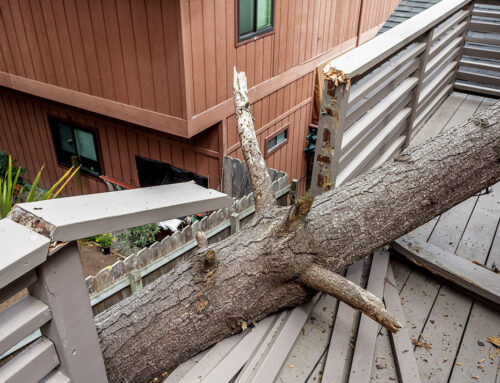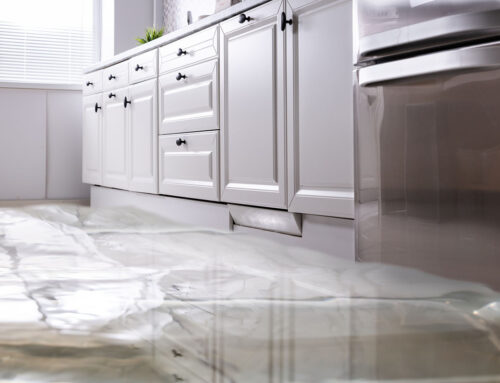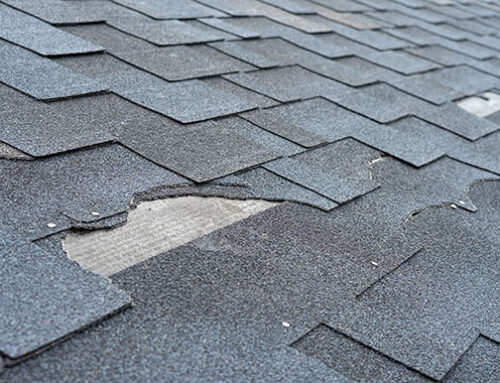Leaky appliances can cause indoor flooding and water damage to your home. Over time, even a slow drip can destroy flooring, lead to structural damage, and increase the risk of mold growth. As a homeowner, it’s important to regularly inspect and maintain your water heater, dishwasher, refrigerator, washing machine, and other household appliances. Here are some practical tips to help you keep your appliances working properly and prevent water from damaging your home.
Schedule regular preventive maintenance for your appliances
Regular maintenance is key to keeping your appliances in good working order. Check your home appliance user manuals to find out how often you should schedule inspections for optimal performance. Between inspections, keep an eye out for dampness, water pooling under or around appliances, mildew, or mold growth. Addressing issues early can help you prevent more extensive damage in the long run.
Upgrade the water line to your refrigerator
The flexible tubing that comes with new refrigerators and other appliances can crack or deteriorate over time. Consider replacing it with stainless steel tubing that has a longer lifespan. While metal tubing is more expensive, it’s stronger and more durable than plastic.
Also, when you install tubing, make sure it’s long enough that it doesn’t become too taut. And, be careful not to push the appliance so close to a wall that the tubing kinks. To function properly, water supply tubing requires the right amount of slack.
Inspect your water heater at least once a year
Sediment can build up over time in water heaters, so be sure to follow the manufacturer’s guidelines for draining a portion of the water to flush the sediment away. Loose fittings and damaged temperature and pressure relief valves can also cause water heaters to leak. Annual inspections allow you to identify issues and potential leaks before they cause water damage to your home.
Keep in mind that traditional water heaters with standing tanks usually last for about ten to 15 years before they start to show signs of age and need to be replaced.
Check the seals on your refrigerator and your freezer door gasket
Proper door seals and gaskets help maintain the temperature in your refrigerator and freezer. Cracked, torn, or defective seals allow warm air to leak into the appliance and force it to work harder to keep food cold—which also raises your electricity bills. Condensation and moisture may build up in the appliance, resulting in a water leak. To prevent damage to your home, repair or replace and defective door seals and gaskets.
Use the recommended type and amount of laundry detergent
Consult the user manual to determine the recommended type of laundry detergent to use in your washing machine. And, follow the manufacturer’s recommendations regarding how much laundry detergent to use. Using the wrong detergent—or the wrong amount—can lead to excessive suds that seep out around door seals and into your home. Using the wrong product may also leave behind residues that eventually damage the machine.
Level and stabilize your home appliances
Off-kilter or unbalanced appliances may work improperly and leak water. If the appliance doesn’t feature height-adjustable legs, simply prop up one side of it with a shim.
Recognize that it may be time to replace a household appliance
As parts and connections age, older appliances are often less energy efficient, more expensive to operate, and susceptible to leaks. Investing in new appliances can save you money by eliminating repair costs and lowering your monthly energy bills. Check to see if your community offers rebates for purchasing ENERGY STAR-certified home appliances.
Water damage repair experts are available 24/7
Taking care of your appliances is the best way to prevent water damage in your home, but if you need water damage repair services, ESR Disaster Hero specialists are available 24/7. We’re equipped to handle water mitigation jobs of any size and restore your property to its original state. Contact ESR Disaster Hero today, and we’ll take care of the rest.


